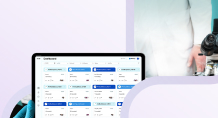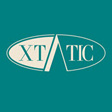During their work, laboratories today produce so much data, that processing it in a lot of instances can be the limiting factor, slowing down research or contributing to employee burnout.
In such an environment, laboratory information management systems (LIMS) have seen a lot of interest from researchers. Consequently, the laboratory information management system market is projected to rise from $1.8 Billion in 2023 to $4.7 Billion in 2033.[1]
How does laboratory data management software work?
Software for laboratory data management is intended to assist labs in securely and effectively handling enormous amounts of data. These systems are essential for automating many laboratory tasks, including data processing, quality control, sample management and tracking, and report generation. Typically, LDMS interfaces with lab equipment to automatically record lab data, eliminating human error and guaranteeing the correctness of results.
Traditional approaches depend primarily on manual lab processes, such as spreadsheets and paper records, which increase human error and make it more difficult to maintain data correctness. This is in contrast to modern laboratory data management software. These manual systems require a lot of time, are laborious, and cannot be integrated with lab equipment to collect data automatically. It was more difficult to establish compliance with regulatory standards because of the difficulty in keeping audit trails and generating reports.
With automation, real-time data access, and improved collaboration provided by modern LDMS, these procedures are streamlined leading to increased productivity and compliance.
Fundamentally, laboratory data management software fulfills the following key features:
- Data gathering and storage: A centralized data management system stores lab data that is automatically gathered from instruments. This guarantees that every piece of data is arranged and ready for further examination.
- Data analysis: In-built capabilities for analyzing test data are provided by advanced LIMS software packages. These tools can produce insights and trends guiding research, diagnosis, and product development.
- Compliance and reporting: By keeping track of audit trails, guaranteeing data correctness, and generating the required compliance reports, laboratory information management systems assist labs in adhering to regulations.
- Integration with other systems: To create a smooth workflow for lab operations across departments, LIMS solutions frequently integrate with management software, enterprise resource planning (ERP) systems, and an electronic lab notebook.
All of these benefits have given rise to a few new and modern technologies.
Tech trends to look for
A number of significant technology advancements are shaping future developments in laboratory data management software. To increase efficiency, compliance, and data processing, laboratories are incorporating technologies like the ones described below.
Data visualization tools
The utilization of advanced data visualization techniques is vital due to the increasing intricacy of laboratory data. With the use of these technologies, researchers and analysts may quickly identify trends and anomalies by converting raw lab data into comprehensible charts, graphs, and dashboards.
Improved data visualization tools facilitate the process of extracting insights from laboratory data, thereby expediting decision-making and optimizing laboratory operations.
Cloud-based solutions
Because cloud computing offers scalable, flexible, and affordable data storage options, it is an essential part of today’s laboratory data management system. Large amounts of lab data can be safely stored in the cloud and easily accessed from any place using cloud-based LIMS solutions.
These platforms facilitate real-time data sharing and analysis among academics, as well as automated backups and disaster recovery for data security. All things considered, they increase operational effectiveness and lessen the requirement for costly on-site infrastructure.
Discover how we can help outsource Healthcare projects efficiently Speak to an expert today, and see how our on-demand IT talent and augmented teams can efficiently deliver value at every step of your roadmap.

Artificial intelligence and machine learning
Laboratory data management is seeing a major upsurge in the application of AI and ML. Predictive modeling, anomaly detection, and automated data analysis are made possible by these technologies. Artificial intelligence and machine learning algorithms can recognize patterns, forecast results, and even recommend the best course of action for intricate laboratory procedures by analyzing past lab data.
For instance, in a pharmaceutical lab, large-scale clinical trial statistics can be analyzed by AI-powered LIMS software, which can spot minute trends that researchers might miss. By finding the most effective procedures or anticipating instrument failures, machine learning algorithms can also be used to optimize lab workflows.
Blockchain for data integrity
A vital instrument for guaranteeing data confidentiality and integrity in laboratory operations is blockchain technology. Blockchain ensures that no one can remove or edit lab data without leaving a trail because every modification is documented in a safe, unchangeable ledger. For labs working with delicate or restricted samples—like those used in clinical trials or pharmaceutical research—this is extremely helpful.
By generating a tamper-proof audit trail, blockchain technology also aids in compliance maintenance by facilitating labs’ ability to prove compliance with regulations in the event of audits or inspections.
That being said, these technologies do not come without some concerns such as security. 67.79% of decision-makers find vendor reputation and awareness of paramount importance when introducing lab data management software.[2]
Security and Compliance Issues in Laboratories
While it is in the interest of researchers to implement this type of software into their workflow, caution must be taken in two areas.
Issues with security
Laboratories, particularly those that handle sensitive data in industries like healthcare, pharmaceuticals, and clinical research, confront many difficulties.
Because of the enormous amount of lab data produced in these settings – from patient information and clinical trial outcomes to confidential research findings – it is crucial to take precautions against data corruption, unwanted access, and breaches. [3]
Strict regulations
The General Data Protection Regulation (GDPR) in Europe and the HIPAA (Health Insurance Portability and Accountability Act) in the healthcare industry, specify how data must be stored, accessed, and secured.
Stringent access control and oversight of who can view or modify lab data are frequently necessary to preserve compliance with regulatory authorities. Compliance issues may arise from this, which may put the laboratory’s operating licenses in jeopardy and result in costly fines.
Solutions for enhanced security and compliance
Modern LIMS software packages have added a range of security features and compliance tools to solve these issues. These technologies are intended to protect sensitive lab data while complying with industry requirements. Because they include features like automated compliance reporting, sophisticated user access controls, and better security standards, cloud-based LIMS solutions have proven to be especially useful in this area.
Here are the main solutions used:
- Data encryption: Encryption is one of the most important components of contemporary laboratory data management software. End-to-end encryption, a feature of a good cloud-based LIMS solution, guarantees the security of lab data both at rest (in databases) and during transmission (when transferring data between systems or users). Because only authorized individuals with the right decryption keys may access the data, this greatly lowers the danger of unauthorized data access or breaches.
- Audit trails and reporting: All system actions are tracked by the extensive audit trails that are automatically generated by modern LIMS software. This covers who had access to the information, when it was changed, and exactly what was changed. These audit logs, which offer an accurate and verifiable record of all laboratory activities, are essential for fulfilling regulatory compliance requirements. Moreover, automated reporting features guarantee that labs can provide compliance reports quickly and save time in the event of audits or inspections.
- Compliance with global standards: Many modern LIMS solutions are built to comply with global regulatory frameworks like HIPAA, GDPR, and GLP (Good Laboratory Practices).[4] These systems include built-in compliance features such as data protection protocols, access monitoring, and automated reporting to ensure that laboratories meet legal requirements. This is particularly important for labs working in highly regulated industries, where non-compliance can lead to significant financial and reputational damage.
Conclusion
As a result of these measures, LIMS software that gives all of the above-mentioned benefits with virtually no drawbacks is currently on the market! The issue for laboratories is to find out which LIMS software solutions are secure, compliant, and come from a reputable vendor.
On that front, searching for a trusted IT partner may be just what a lab needs. Competitors such as BGO Software, which specializes in healthcare software can spot software vulnerabilities or review the compliance of each laboratory data management software.
Whether you’re a startup, a Fortune 100 company or a government organisation, our team can deliver a solution that works for you. BGO Software

















